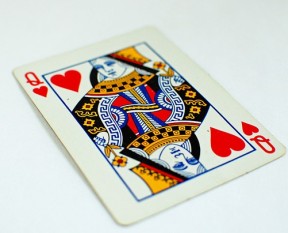Woo’d 🗡️❤️💰#
Genre and time seem to be deeply interwoven, especially when we think of the narrative weight and emotional distance that time imposes on storytelling. If we consider genres as lenses through which human experience is refracted, then time provides the axis along which those refractions shift and evolve. Here’s how I see it:
Epic: The Infinite Time Scale#
Epics stretch time to its outermost limits. They are timeless by design, concerned with the grand arc of history, myth, and civilization. Whether it’s The Iliad, The Mahabharata, or Lawrence of Arabia, the epic unfolds across vast expanses of years (or even eras), and its characters often stand as symbols of humanity’s enduring struggles—love, war, destiny. Epics require emotional and temporal distance; their narratives are so colossal that they demand retrospection to fully grasp their scale. You can’t laugh or cry in the moment with an epic—you are left awestruck, gazing at humanity’s cosmic footprint.
Tragedy: The Intimate Present#
Tragedy compresses time. Its power lies in immediacy, the sense that events are unfolding so close to the protagonist—and by extension, the audience—that they feel inescapable. Think Hamlet, Oedipus Rex, or even Breaking Bad. The tragic hero is caught in the relentless grip of fate or character flaws, and the weight of their choices feels suffocatingly urgent. There’s no temporal cushion to soften the blow; tragedy is raw, personal, and devastating in its proximity. Yet, with time, tragedy often metamorphoses into something else—like a scar that becomes a story, or a wound that grows tolerable with distance.
Comedy: The Breath of Time#
Comedy thrives in the opposite condition: the gap created by time. It needs a little distance to soften sharp edges, to allow us to see the absurdity in what might otherwise feel tragic. This is why so many comedies revolve around misunderstandings, reversals of fortune, and human folly—situations that, in the moment, might feel devastating, but with time, reveal their ridiculousness. Shakespeare’s comedies, for instance, often involve characters navigating through chaotic, often painful entanglements, only to end in laughter and reconciliation. Comedy shrinks time enough to find levity but not so much that we forget the humanity behind the laughter.
History: The Long View#
Historical works sit somewhere between tragedy and epic. They are grounded in the real and often tragic outcomes of human events but viewed through the reflective lens of time. This genre demands both distance and perspective; it requires the space to analyze, to connect the dots, and to ponder how those events resonate in the present. War and Peace or Schindler’s List operate in this mode, blending the personal and the collective. History can be tragic in its immediacy yet epic in its scope, serving as a bridge between these two poles.
Pastoral: The Eternal Present#
Pastoral works seem to exist outside of time, or at least outside the conventional ticking of the clock. They often evoke a mythical sense of timelessness, a yearning for a simpler, idealized connection to nature and community. Yet this timelessness is often nostalgic, revealing itself as an illusion of stability in an ever-changing world. Think As You Like It, or even My Neighbor Totoro. The pastoral is a pause in the chaos, a suspended moment where humanity and nature find fleeting harmony.
Genre as a Temporal Spectrum#
If we arrange these genres along a temporal spectrum, it might look something like this:
Epic (Infinite Time) → History (Broad Time) → Tragedy (Immediate Time) → Comedy (Refracted Time) → Pastoral (Timelessness)
What’s fascinating is how time doesn’t just determine the structure of these genres but also reshapes how we perceive them. A tragedy endured long enough may turn into comedy (The Death of Stalin). A historical epic (The Godfather) can gain tragic resonance with each new viewing. Comedy, given enough distance, can become epic in its cultural significance (Monty Python and the Holy Grail).
Ultimately, genre is a conversation with time, a reflection of how we metabolize human experience—whether we’re awestruck by the scale of history, mourning its intimate casualties, laughing at its absurdities, or longing for an Eden that time has erased.

